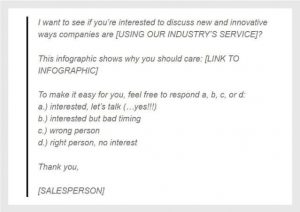Plus, submit your session pitch for our fall MarTech event
Marketing Land’s daily brief features daily insights, news, tips, and essential bits of wisdom for today’s digital marketer. If you would like to read this before the rest of the internet does, sign up here to get it delivered to your inbox daily.
Good morning, Marketers, and here’s another thing having a moment in the spotlight.
User-generated content, or UGC. That can mean anything from customer reviews and ratings, to opinions or images shared online. Why is it in the spotlight? Because in the digital bubble of the last 14 months, people have found more time to spend, not only scrolling endlessly online, but expressing themselves — often in relation to products and services they love (or hate).
The loving engagement can be leveraged, of course, by brands into a stream of content inherently more trusted than much of their own messaging. And the time is ripe.
That’s our first story today, but look out too for an invitation to participate in the fall edition of MarTech.
Kim Davis
Editorial Director
It’s time for brands to leverage customer content
Driving brand awareness and conversions through user-generated content isn’t a new tactic for digital marketers, but those methods are finding new levels of success during the COVID-19 pandemic.
For example, Canadian manufacturer Calego, maker of iFLY luggage and accessories, has leveraged UGC to help it sell over 250 million face masks during the pandemic.
Their success in capturing and distributing customer reviews has also resulted in them selling approximately 8 million iFLY Smart Kits — low-cost bundles containing rubber gloves, wipes and other items that aid in the safety and comfort of air travelers.
The company developed the concept of the Smart Kit back in 2017 in a much different climate for travel-related safety gear.
“We were able to collect ratings and reviews on this item before COVID-19,” said David Rapps, President of Calego. “It really wasn’t selling well. We knew nothing was wrong with the product, and it received high ratings from anyone who bought it.”
Even though it wasn’t selling pre-COVID, the user-generated reviews let Calego know what customers liked and disliked, Rapps said. They had enough positive feedback to know that it would be worth the investment to make more iFLY Smart Kits available in a time of high demand for protective equipment and comfort accessories.
All of this comes as new places for UGC have multiplied. Google and Amazon are giants but other retail marketplaces for big-box retailers like Walmart and Target are driving considerable reviews for brands like Calego. Social media platforms generate a continuous stream of UGC about products and brands, and new platforms (Hello, TikTok) and content formats like Stories create even more options that users can leverage.
It’s not too early! Submit your session pitch for MarTech September 14-15, 2021
MarTech returns virtually on September 14-15, 2021 with more great sessions, keynotes, community meetups and workshops. This time the focus will be on how data is a common thread across digital transformation and is at the core of martech.
As always, we’re looking for new speakers and long-time friends with diverse points of view to submit session ideas in the following areas:
- Marketing automation
- Managing customer data
- Digital asset management
- Marketing attribution and predictive analytics
- Content management
- Account-based marketing
- Identity resolution
- Customer journey analytics
- Marketing project management
- Martech operations and orchestration
The deadline for session pitches is July 31st! Jump over to this page for more details on how to submit a session idea, or directly to this page to create your profile and submit a session pitch.
If you have questions, feel free to reach out to me directly at kbushman@thirddoormedia.com. I’m looking forward to reading your session pitches!
Busting the old martech myth
Martech Tribe founder Frans Riemersma got people talking on Twitter when he referred to the need — yet again — to bust martech’s founding myth. The myth? “Select a solution and it will automagically [sic] work wonders.”
Stefan Bergmeier of IP Deutschland suggested that the problem doesn’t necessarily lie with the tools: “The reasons might be organisational, technical, processual — and it takes guts and time to identify them.” Henk-jen ter Brugge, of Philips, was harsher: “A fool with a tool is still a fool, so don’t forget the people side.”
And that was the consensus of the thread. It’s not the tools, it’s the processes, planning, implementation and execution. But there must also be some tools that just don’t meet expectations (if you have any stories for us, you can remain anonymous: kdavis@thirddoormedia.com).
Ready to go out on your own? Building a digital marketing business from scratch
With COVID shifting the way digital marketing works and upending our lives, we’ve seen many marketers decide to quit their agency or in-house jobs and go out on their own. In fact, the pandemic forced many into starting their own consulting businesses as companies laid off employees, according to data from Upwork.
If you’ve started your own freelancing business due to COVID or are thinking about launching your new venture soon, seasoned business owner Jamar Ramos has some tips for fellow digital marketers to make it a success.
- Understand your “why”
- Understand your offering
- Decide if you’re going solo or with partners
- Determine your rates
- Figure out your contract length (retainers? month-to-month?)
- Have a plan to hire help (before you need it)
- Learn how to deal with loss
- Take everything with a grain of salt
“I wasn’t ready to run [my first] company because I didn’t do the homework needed to build, maintain and grow a business properly. However, I learned from the experience,” says Ramos. And these lessons he shares are the result.
Quote of the day
“There is a real opportunity to capture the hearts and minds of those that are ready to come back into the world. The companies that figure out how to hold safe, trustworthy, relevant and valuable events, are going to have an opportunity to recapture and rebuild a community of attendees — an audience that is going to skyrocket their event programs over the next couple of years.” Ben Hindman, founder and CEO, Splash.
Marketing Land – Internet Marketing News, Strategies & Tips
(34)
Report Post






